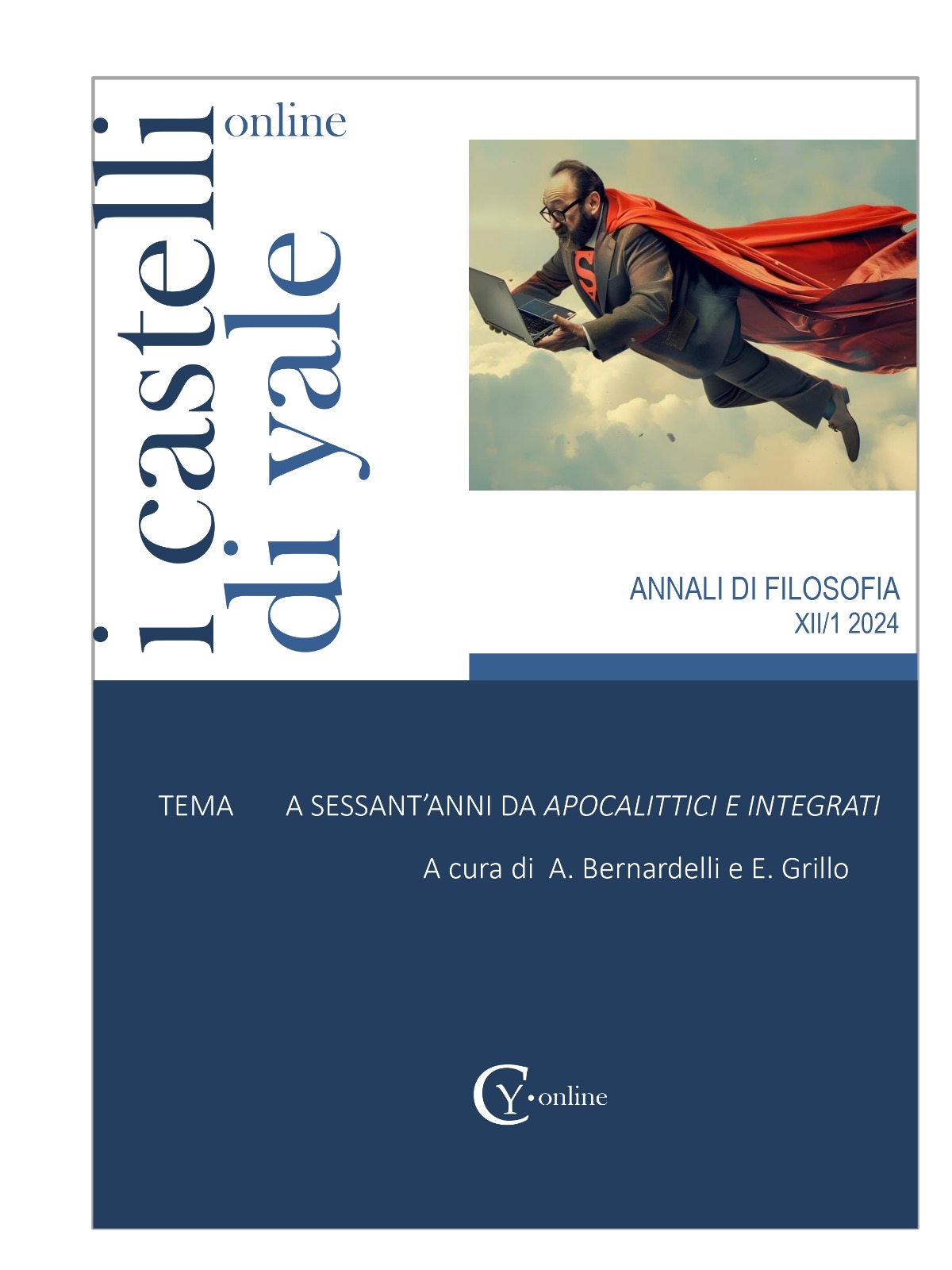Reason, violence and explanations in social sciences
DOI:
https://doi.org/10.15160/2282-5460/2872Keywords:
Reason , violence, Hobbes, moral rules, authorityAbstract
Following Hobbes concerning the absence of right reason by nature, I argue that a social and institutional arrangement is necessary for reason to gain the objectivity which permits it to function as an alternative to the violent resolution of conflicts. Construed subjectively as maximizing one’s utility function reason fails to constitute a norm of action that distinguishes it from violence. I further inquire into the differences between moral rules, laws and rational prescriptions. A common characteristic of all three is that unlike laws of nature or coded instructions, they should be obeyed, but they can and commonly are transgressed. However, moral rules and laws I argue are less subjective than rational prescriptions because conceptually they necessarily involve relation to others and cannot be reduced to either the subject’s relation to the world or to him or herself and analyse how rational and violent solutions to conflicts differ.
References
Dumouchel, P. (2013). The Sovereignty Race. In The Ambivalence of Scarcity and Other Essays (227-250). Michigan: Michigan State University Press.
Dumouchel, P. (2018). Rationality, Irrationality, Realism and the Good. In The Mys-tery of Rationality: Mind, Beliefs and the Social Sciences, 53-65.
Dumouchel, P. (2020). After-Truth. In Contagion: Journal of Violence, Mimesis, and Culture. Michigan: Michigan State University Press, 27, 1-14.
Dumouchel, P. (2022). Reason and Violence. In Encyclopedia of Violence, Peace & Conflict (3rd ed., Vol. 4, 369-376). Academic Press.
Elster, J. (1983). Sour Grapes Studies in the Subversion of Rationality. Cambridge: Cambridge University Press.
Hampton, J. E. (1998). The authority of reason. Cambridge: Cambridge University Press.
Hardin, R. (1995). All for One. The Logic of Group Conflict. Princeton: Princeton University Press.
Hobbes, Th. (1647). Troisièmes Objections. In A. Bridoux (ed.). Descartes. Oeuvres et Lettres. (399-420). Paris: Gallimard, 1953.
Hobbes, Th. (1651). Leviathan or The Matter, Forme & Power of a Common-Wealth Ecclesiastical and Civil. In C.B. Macpherson (ed). Harmondsworth: Penguin Books, 1976.
Kojève, A. (1940). The Notion of Authority: A brief presentation. London: Verso Books, 2014.
Neiman, S. (2004). Evil in Modern Thought an alternative history of philosophy. Princeton: Princeton University Press.
Plutarch. (1885) On the Delay of the Divine Justice. A.P. Peabody (tr.). Boston: Little Brown and Co.
Popkins, R. (1979). The History of Skepticism from Erasmus to Spinoza. Berkeley: University of California Press.
Rapaczynski, A. (1987). Nature and politics. Liberalism in the philosophies of Hobbes, Locke, and Rousseau. Ithaca: Cornell University Press.
Wintrobe, R. (2006). Rational Extremism: The Political Economy of Radicalism. Cambridge: Cambridge University Press.
Downloads
Published
Issue
Section
License
Copyright (c) 2024 Paul Dumouchel

This work is licensed under a Creative Commons Attribution-NonCommercial-NoDerivatives 4.0 International License.


